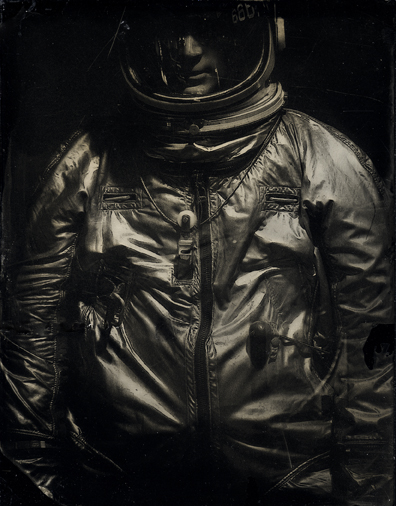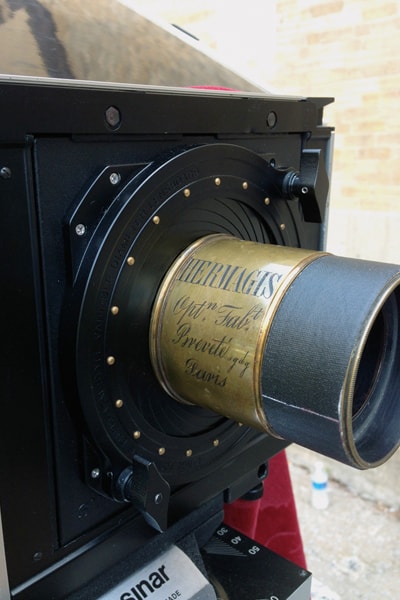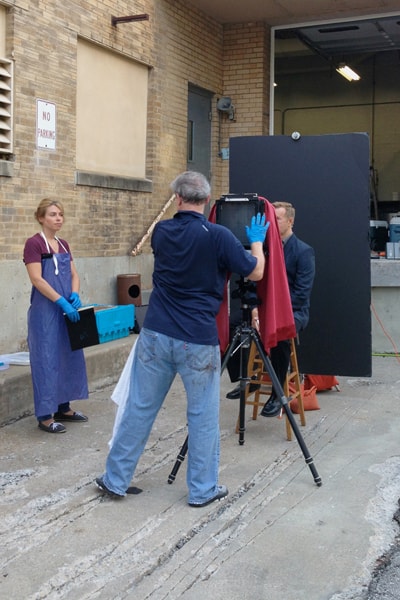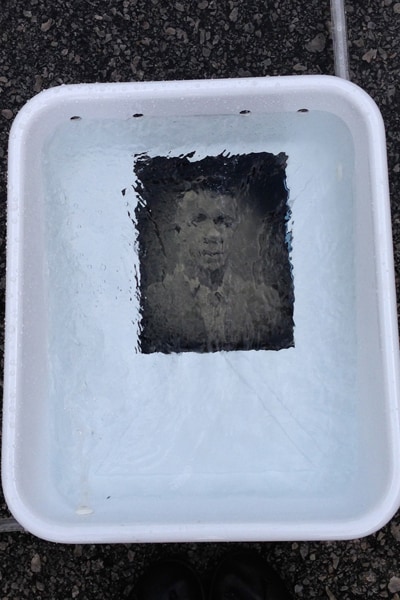In addition to his work in photography and videography at Hallmark, Steve is an acclaimed artist working in a variety of contemporary and historic photographic processes. He has noted that his photography is about “the discipline of noticing the presence of grace in detail.” Using the wet plate collodion process, he creates mysterious images of spaces and objects that otherwise remain overlooked. The resulting glass plates are beguiling objects in their own right that reveal their nuances under changing light conditions, as do the original portraits of our curatorial staff.
Steve’s work is included in numerous private and public collection including the Polaroid Collection in Cambridge, the Nelson-Atkins Museum of Art in Kansas City, and the Negro Leagues Baseball Museum in Kansas City. He also lectures nationally and teaches workshops on alternative photographic processes.

Steve Wilson
Mr. Spaceman
wet plate collodion ambrotype, 2004
Courtesy Hallmark Cards Archives & Collections
ABOUT THE PROCESS
The wet plate collodion process was invented by Frederick Scott Archer in 1850 and was among the premier photographic processes of the day from 1850 to the 1880’s. It is also loosely referred to as the “tintype” process but the actual name varies depending on the substrate used. When a coating of iodized collodion is used to generate a positive image on glass, the result is known as an “ambrotype,” a term derived from the Greek words for “immortal image.” The wet plate process has lately enjoyed a resurgence in popularity largely due to the work of scholars and reenactors of the Civil War.



